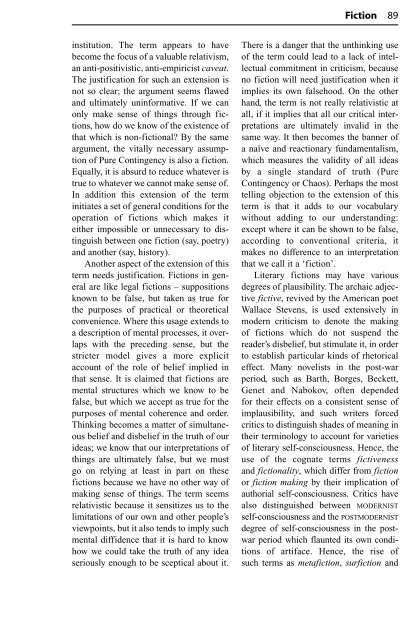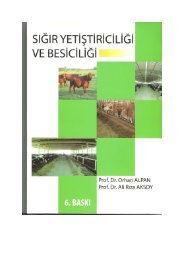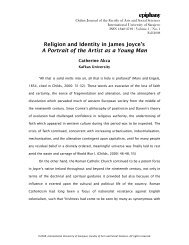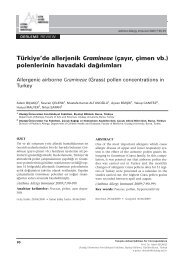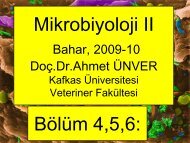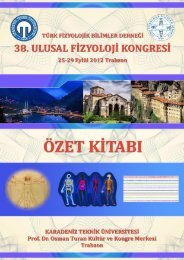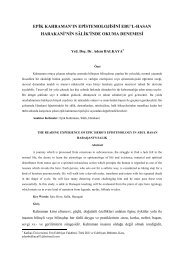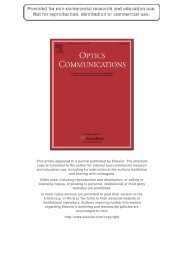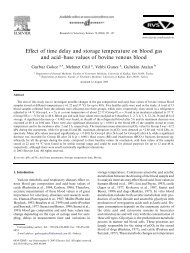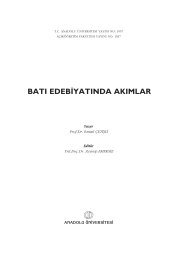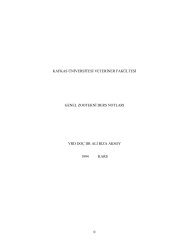The Routledge Dictionary of Literary Terms
The Routledge Dictionary of Literary Terms
The Routledge Dictionary of Literary Terms
You also want an ePaper? Increase the reach of your titles
YUMPU automatically turns print PDFs into web optimized ePapers that Google loves.
institution. <strong>The</strong> term appears to have<br />
become the focus <strong>of</strong> a valuable relativism,<br />
an anti-positivistic, anti-empiricist caveat.<br />
<strong>The</strong> justification for such an extension is<br />
not so clear; the argument seems flawed<br />
and ultimately uninformative. If we can<br />
only make sense <strong>of</strong> things through fictions,<br />
how do we know <strong>of</strong> the existence <strong>of</strong><br />
that which is non-fictional? By the same<br />
argument, the vitally necessary assumption<br />
<strong>of</strong> Pure Contingency is also a fiction.<br />
Equally, it is absurd to reduce whatever is<br />
true to whatever we cannot make sense <strong>of</strong>.<br />
In addition this extension <strong>of</strong> the term<br />
initiates a set <strong>of</strong> general conditions for the<br />
operation <strong>of</strong> fictions which makes it<br />
either impossible or unnecessary to distinguish<br />
between one fiction (say, poetry)<br />
and another (say, history).<br />
Another aspect <strong>of</strong> the extension <strong>of</strong> this<br />
term needs justification. Fictions in general<br />
are like legal fictions – suppositions<br />
known to be false, but taken as true for<br />
the purposes <strong>of</strong> practical or theoretical<br />
convenience. Where this usage extends to<br />
a description <strong>of</strong> mental processes, it overlaps<br />
with the preceding sense, but the<br />
stricter model gives a more explicit<br />
account <strong>of</strong> the role <strong>of</strong> belief implied in<br />
that sense. It is claimed that fictions are<br />
mental structures which we know to be<br />
false, but which we accept as true for the<br />
purposes <strong>of</strong> mental coherence and order.<br />
Thinking becomes a matter <strong>of</strong> simultaneous<br />
belief and disbelief in the truth <strong>of</strong> our<br />
ideas; we know that our interpretations <strong>of</strong><br />
things are ultimately false, but we must<br />
go on relying at least in part on these<br />
fictions because we have no other way <strong>of</strong><br />
making sense <strong>of</strong> things. <strong>The</strong> term seems<br />
relativistic because it sensitizes us to the<br />
limitations <strong>of</strong> our own and other people’s<br />
viewpoints, but it also tends to imply such<br />
mental diffidence that it is hard to know<br />
how we could take the truth <strong>of</strong> any idea<br />
seriously enough to be sceptical about it.<br />
Fiction 89<br />
<strong>The</strong>re is a danger that the unthinking use<br />
<strong>of</strong> the term could lead to a lack <strong>of</strong> intellectual<br />
commitment in criticism, because<br />
no fiction will need justification when it<br />
implies its own falsehood. On the other<br />
hand, the term is not really relativistic at<br />
all, if it implies that all our critical interpretations<br />
are ultimately invalid in the<br />
same way. It then becomes the banner <strong>of</strong><br />
a naïve and reactionary fundamentalism,<br />
which measures the validity <strong>of</strong> all ideas<br />
by a single standard <strong>of</strong> truth (Pure<br />
Contingency or Chaos). Perhaps the most<br />
telling objection to the extension <strong>of</strong> this<br />
term is that it adds to our vocabulary<br />
without adding to our understanding:<br />
except where it can be shown to be false,<br />
according to conventional criteria, it<br />
makes no difference to an interpretation<br />
that we call it a ‘fiction’.<br />
<strong>Literary</strong> fictions may have various<br />
degrees <strong>of</strong> plausibility. <strong>The</strong> archaic adjective<br />
fictive, revived by the American poet<br />
Wallace Stevens, is used extensively in<br />
modern criticism to denote the making<br />
<strong>of</strong> fictions which do not suspend the<br />
reader’s disbelief, but stimulate it, in order<br />
to establish particular kinds <strong>of</strong> rhetorical<br />
effect. Many novelists in the post-war<br />
period, such as Barth, Borges, Beckett,<br />
Genet and Nabokov, <strong>of</strong>ten depended<br />
for their effects on a consistent sense <strong>of</strong><br />
implausibility, and such writers forced<br />
critics to distinguish shades <strong>of</strong> meaning in<br />
their terminology to account for varieties<br />
<strong>of</strong> literary self-consciousness. Hence, the<br />
use <strong>of</strong> the cognate terms fictiveness<br />
and fictionality, which differ from fiction<br />
or fiction making by their implication <strong>of</strong><br />
authorial self-consciousness. Critics have<br />
also distinguished between MODERNIST<br />
self-consciousness and the POSTMODERNIST<br />
degree <strong>of</strong> self-consciousness in the postwar<br />
period which flaunted its own conditions<br />
<strong>of</strong> artiface. Hence, the rise <strong>of</strong><br />
such terms as metafiction, surfiction and


